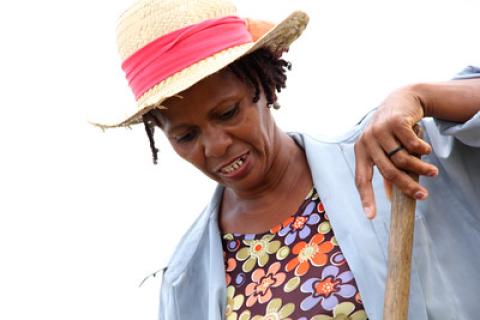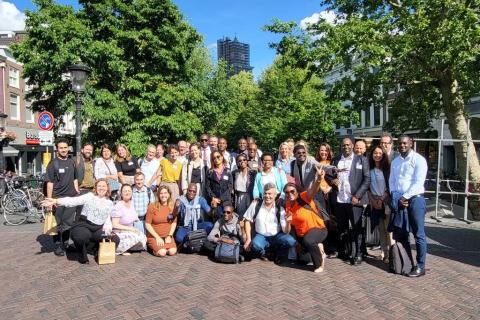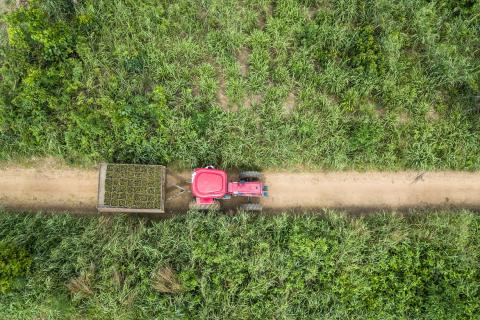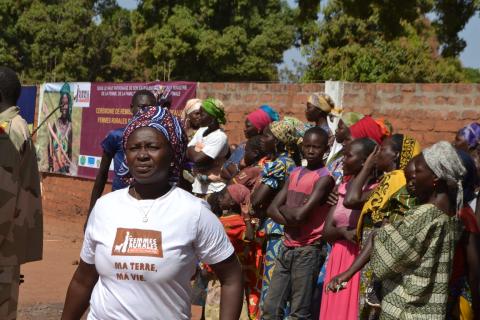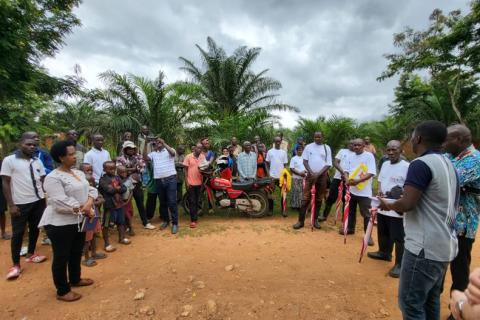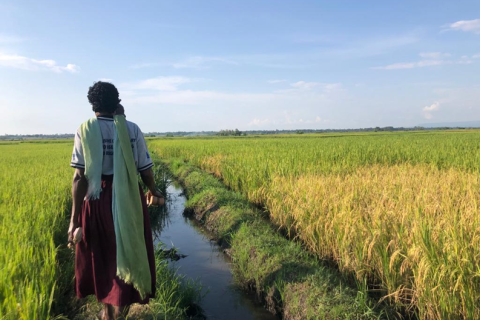De las promesas al progreso: Financiación de las iniciativas climáticas más allá de la COP28
De las promesas al progreso: Financiación de las iniciativas climáticas más allá de la COP28
Dos años después de que los donantes internacionales prometieran 1.700 millones de dólares a los pueblos indígenas en la COP26, un reconocimiento de su papel crucial en la protección de la biodiversidad y la captura de carbono, se ha avanzado bastante en la preparación de los sistemas necesarios para que se desembolse el dinero.
Los culpables de la crisis climática y ambiental
Por Gonzalo Colque, investigador de F.Tierra
Esta semana, los cruceños sufrieron la peor crisis climática y ambiental. La alta contaminación del aire por el humo de los incendios obligó a las autoridades a suspender las clases en más de 3.600 escuelas y colegios. Durante tres días consecutivos, en horas pico, el termómetro marcó por encima de 40° C, algo sin precedentes en la urbe cruceña. A razón de estos hechos, el comité de emergencia declaró “alerta roja sanitaria” y se multiplicaron los pedidos para buscar y sancionar a los culpables.
Desastres climáticos, migración y documentación sobre el derecho a la tierra en Bangladesh
En vísperas de las próximas conversaciones internacionales sobre el clima, los agricultores de las regiones costeras de Bangladesh insisten en la importancia de contar con unos derechos sobre la tierra sólidos y bien documentados ante las múltiples catástrofes provocadas por el cambio climático que han afectado negativamente a sus vidas y medios de subsistencia.
La conservación de los bosques de Costa Rica genera beneficios
Costa Rica es ampliamente reconocido por ser un líder mundial debido a sus logros ambientales, entre los cuales cabe destacar sus buenos resultados en la conservación de los bosques. Es el primer país tropical del mundo que ha revertido la deforestación.
Transformaciones de la agricultura cubana
Raíces de la agricultura cubana. Históricamente, hasta antes de la Revolución, el modelo y la práctica agrícola cubana eran el resultado de dos circunstancias particulares: la herencia colonial y la llegada del capital estadounidense. Ambas condiciones derivaron en formas típicas de explotación capitalista de la tierra.
Looking back at the LAND-at-scale Exchange 2023: Scaling as the way Forward
The second LAND-at-scale (LAS) exchange took place from June 26th to June 28th, 2023. Sixty partners came together in Utrecht, the Netherlands to exchange lessons learned and explore common challenges. As of 2023, ten country projects are currently being implemented under the LAS program, namely Burkina Faso, Burundi, Chad, Colombia, Mali, Mozambique, the Palestinian Territories, Somalia, Rwanda and Uganda. All countries were represented and almost all implementing partners were present at the Exchange.
Scaling readiness: experiences from the CGIAR scaling readiness approach
Challenges with regards to scaling is not unique to the land sector. Working in the context of agriculture for development, CGIAR and Wageningen University developed the Scaling Readiness approach. This approach response to the fact that the pressure to demonstrate fast and visible results and impact at scale, has sometimes resulted in unreasonable and unrealistic expectations, and in fact stimulated simplistic and non-sustainable scaling approaches.
LAND-at-scale Chad: Collective action to bring land to the national political agenda
Chad is at the verge of an emerging land tenure crisis. As observed in many countries in Africa, formal and customary tenure systems overlap. Customary tenure systems, that generally prevail in rural areas, differ from region to region, with each its own needs and practices. Land conflicts are abundant, caused by degradation and transformation of land surfaces caused by climate change, as well as land investments by domestic investors with disputed legitimacy.
LAND-at-scale Burundi: The need for a unified vision for inclusive and sustainable land governance
Burundi has the world’s highest hunger score and around 45 percent of the population is affected by food insecurity. The country copes with increasing scarcity of land as a result of increasing population size, returnees and IDPs and climate change. With the majority of Burundians depending on agriculture for their food and livelihoods, land scarcity makes this reliance on agriculture precarious. This pressure on land causes elevated levels of land disputes with over 55% of all court cases being related to conflicts over land.
Scaling as the way forward: defining and understanding scaling
Scaling is at the heart of both the name as well as the strategy of LAND-at-scale. Scaling and scaling potential are key in the way the program was designed and is reflected in the three pillars chosen to realize the aim of the program. The first pillar is about scaling successful initiatives and projects; the second pillar focuses on land governance innovations with scaling potential; and the third pillar covers knowledge management, with a focus on gaining a deeper understanding on the conditions required to make scaling successful.





